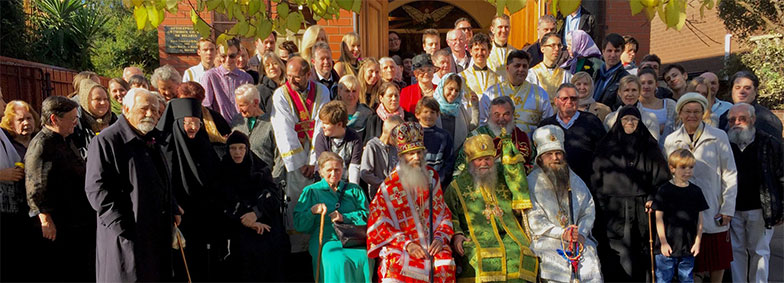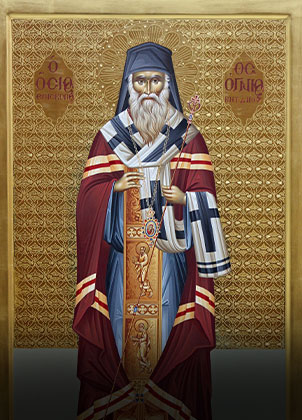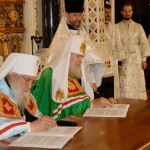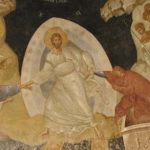
OUR HISTORY
The Russian Orthodox Church Abroad
The Russian Orthodox Church Abroad (ROCA) was formed in 1920 by a group of bishops who were forced to flee the Russian homeland, along with millions of other Russians, in the face of the horrors of the communist system.
In that same year, the holy Patriarch Tikhon and the Synod of the Russian Orthodox Church, in the anticipation that the Bolshevik authorities would not permit the Russian Orthodox Church’s Supreme Church Administration to function freely and independently, issued the famous Decree No. 362. The Decree stated that if the Supreme Church Administration ceased to exist, all bishops of the Russian Orthodox Church were directed to form, on a temporary basis, autonomous church districts wherever they found themselves.
Decree No. 362 remains the canonical foundation for the autonomous existence of the ROCA until it is possible, if such is God’s will, to convene a free Local Council of the Russian Orthodox Church and to restore the Supreme Church Administration.
The Moscow Patriarchate and Sergianism
In 1927, the Bolsheviks succeeded in completely subjugating the Supreme Church Administration of the Russian Orthodox Church, which was then led by Metropolitan Sergey (Stragorodskiy). In his Declaration of 1927, Metropolitan Sergey pledged the absolute and unconditional loyalty of the Church to the Soviet atheistic regime in exchange for a measure of relative freedom and relief from persecution. This loyalty also included total agreement with the regime’s antichrist goals. The Declaration was a turning point after which the Sergianist church administration became a tool of the Communists for exercising control over the Church to achieve their goal of Her ultimate annihilation.
The Sergianist bishops declared that the confessors of Christ were nothing but political criminals who were justly punished and that the churches destroyed by the God-fighting government were destroyed at the request of the Church. This was a great and intolerable blasphemy against Christ. To lie and spread falsehoods before God and the Church formed the basis of the Sergianist Church and became its guiding principle.
In 1943, Stalin gave permission to the Sergianist hierarchy to convene a church council that elected Metropolitan Sergey as the Patriarch of Moscow. This so-called Moscow Patriarchate (MP), i.e. the state-controlled official “Russian Orthodox Church,” is inherently uncanonical as it was established by the Communists.
After the collapse of the Communist regime at the end of the 20th century, Sergianism continued under the new circumstances of political freedom and was preserved as a legacy of the past. At the same time, however, Sergianism changed its form. Sergianism, which incorporated within itself a worldly spirit, unscrupulousness, deception, and a pathological servility towards the powerful of this world, continues to betray the Church, but now for self-serving motives and to maintain its own prestigious social status.
Today, the virus of Sergianism infects to some degree a large part of the episcopate of the official Orthodox Churches around the world, and thereby contributes to the promotion of an equally secularist and syncretistic ecumenism.
Ecumenism
Ecumenism arose from the Protestant world in the 19th century. Although ecumenism is cloaked in a wide variety of expressions, it is rooted in religious indifferentism and has as a fundamental goal the fusion of all Christian confessions, and subsequently of all religions, an achievement that would pave the way for the advent of the Antichrist.
Sadly, during the last 100 years the “official” institutions of the historical patriarchates and synods of the Orthodox Church have joined in this movement towards a one-world religion, as has been well-demonstrated by the ecumenist adventures of the Vatican and in the activities of the World Council of Churches.
ROCA union with the MP
For many decades the ROCA remained a stronghold of Orthodoxy, with her bishops and clergy preserving the Orthodox faith without compromise and having nothing to do with the modern ecumenical movement. Nevertheless in 2007 the Synod of Bishops of the ROCA entered into the ignominious union with the MP.
The union with the MP produced a great deal of confusion among many of the ROCA faithful whose holy hierarchs had always taught the flock about the true nature of the Stalinist MP. Internal divisions began to occur within the ROCA as a result of this change of course among some of the hierarchs. This change in direction was in part prompted by the political changes in the former USSR and by the restructuring of the Soviet government into what is known today as the Russian Federation. The realities that a certain measure of political freedom now existed in Russia proved to be a great temptation for some in the ROCA to further assume that this change also equated to the coming of spiritual freedom.
The initial ROCA demands that the MP repent of its participation in ecumenism and its full membership in the World Council of Churches were non-negotiable, but they were soon subordinated and subsumed by the political outlook of those who campaigned for union with the MP. The overwhelming emotions that were provoked by the end of so many years of active persecution and political bondage in Russia proved to be more influential than the entreaties of those whose conscience required the preservation of the purity of the Orthodox faith.
Both in the decade before the ROCA hierarchs subjugated the Church Abroad to the MP and in the time after the union, a number of ROCA splinter groups were formed in reaction to what many considered to be the betrayal of the hierarchs. As a result, today one finds many Russian Orthodox church groups competing in their claim to the spiritual heritage of the ROCA, most of which are not in Eucharistic communion with each other.
The Situation Today
We are not in Eucharistic communion with the Moscow Patriarchate, or with any of the other “official” jurisdictions of so-called 'World Orthodox” who have fallen away from Orthodoxy by virtue of their heretical and apostate actions and their full membership in the World Council of Churches.
The true Orthodox world, however, is plagued with divisions that have their origins in differences of a non-dogmatic nature. For those who seek to convert to the true Orthodox faith, it is a great scandal that the unity of the Church is hindered because of the failings of human personalities and resulting administrative disputes. Inner unity and freedom in Christ are essential to the Church. This unity must not be hindered from having its full expression in the Eucharistic concelebration and communion of all true Orthodox hierarchs in the one, indivisible Body of Christ.
The external administrative divisions between the anti-ecumenist ROCA groups have also underscored the need for unity both within the Russian Orthodox Church and also throughout the true Orthodox world. Orthodox Bishops have a moral obligation to be in Eucharistic communion amongst themselves.
As was stated in the Resolution of the 6th All-Diaspora Council in Mountain View in January 2017: “At this time, we consider the establishment of Eucharistic communion between the divided parts of the once united ROCA to be our primary goal.”







